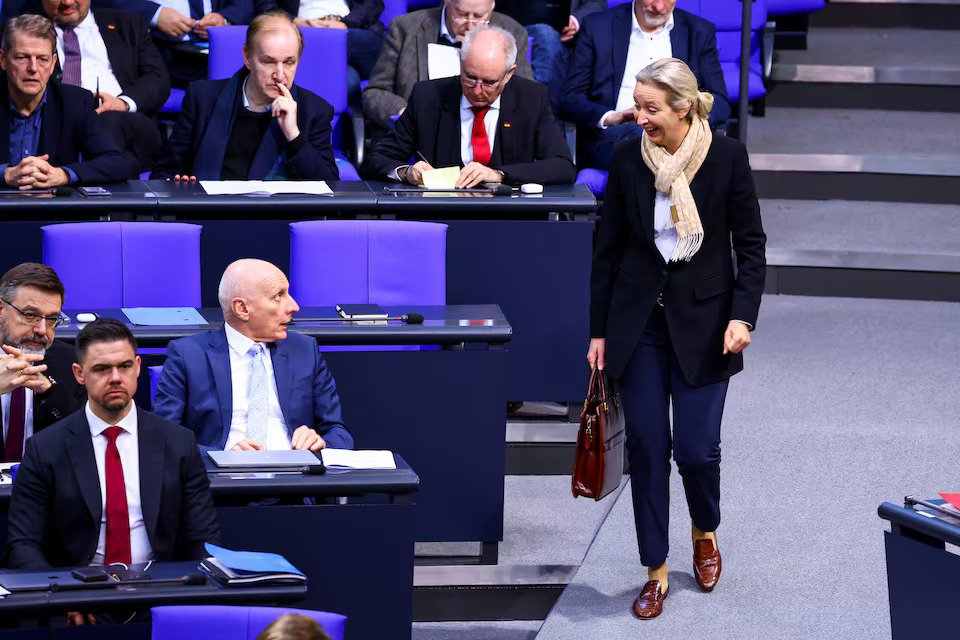The German parliament has narrowly rejected a bill to tighten immigration rules, which was proposed by the opposition conservatives and supported by the far-right Alternative for Germany (AfD). The bill, criticized for breaking a long-standing political “firewall” against working with far-right groups, was turned down by 350 votes to 338, with five abstentions.
The vote came after a heated debate on Friday, where mainstream parties failed to agree on a compromise. The bill’s rejection avoids a historic moment where a law would have passed with far-right support for the first time in modern Germany.
Germany is preparing for snap elections on February 23 after Chancellor Olaf Scholz’s coalition government fell apart last year. Opposition leader Friedrich Merz has made stricter immigration rules a key part of his campaign, especially after a deadly knife attack by a failed asylum-seeker last week.
On Wednesday, Merz’s Christian Democratic Union/Christian Social Union (CDU/CSU) passed a non-binding motion calling for tougher immigration controls, with AfD’s backing. This move sparked widespread criticism, with many saying it weakened the political barrier against far-right influence.
Even former Chancellor Angela Merkel, who rarely speaks publicly since retiring, called Merz’s decision “wrong.” Thousands of protesters gathered outside the CDU headquarters in Berlin on Thursday, with more demonstrations across Germany.
During the debate, German Foreign Minister Annalena Baerbock, from the Green Party, criticized the bill, saying, “You don’t need to tear down a firewall with a wrecking ball to set your own house on fire. It’s enough to keep drilling holes.”
Merz defended his actions, saying, “You can’t seriously believe we are reaching out to a party that wants to destroy us.” He promised to work hard to reduce the AfD’s influence and focus on solving everyday problems for Germans, including safety concerns.
After the vote, the governing Social Democrats and Greens, who opposed the bill, briefly applauded the result. However, AfD leader Alice Weidel called it a “bitter defeat” for Merz, saying it showed his inability to push through stricter immigration measures.
As elections approach, polls show the CDU leading with about 30% support, followed by the AfD at 20%, and the Social Democrats and Greens trailing behind. The recent political moves have deepened divisions between Merz’s conservatives, Scholz’s Social Democrats, and the Greens, who may need to work together to form a government after the election.
What do you think about Germany’s immigration policies and the role of far-right parties in shaping them?

